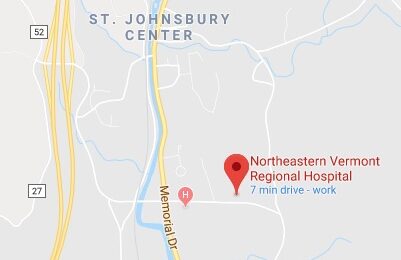Plan Ahead For Winter Weather
It doesn’t seem like winter weather has arrived just yet in Vermont. At this point in the year, we’re used to seeing more blankets of white snow instead of so many fields of green. We’ve had a few days of snow but most of that has melted, and temperatures feel a bit milder than usual with the exception of a few colder days here and there.
Although winter itself won’t come as a surprise, the seemingly less snow and warmer temperatures may not have signaled to us to prepare for the arrival of the winter weather that is sure to come. There’s still time to plan ahead for the hazards winter brings to make sure you stay safe when temperatures begin to drop.
In this rural state, many of us spend a lot of time driving to and from work, school and other errands. There are a few things you can do to get your car ready for cold weather and ensure it runs safely, including getting the battery radiator, breaks, heaters and defrosters serviced; using winter windshield washer fluid to help de-ice; keeping the gas tank full to avoid ice in the tank and fuel lines; and, of course, putting winter tires on your car.
Sometimes the conditions on the road can cause driving to be treacherous no matter how much we try to prepare. To ensure safe travel, the Vermont Department of Health (VDH) recommends clearing the snow and ice from your car before you start driving, and driving slower and maintaining a distance of at least three car lengths between your car and the car in front of you to leave plenty of room to stop.
Some states have laws that require you to clean off your car before you start driving. New Hampshire passed Jessica’s Law in 2002, making it legally required for people to clean their cars before driving, after Jessica Smith was killed when a box truck, which was hit with ice from a tractor-trailer, hit her car.
If there is ice or snow on the road and your car begins to skid, make sure to turn your wheel in the direction you’re skidding to regain some traction and either apply pressure to anti-lock breaks or, if you do not have anti-lock breaks, pump the breaks.
If your car goes off the road and you get stuck in the snow, make sure your exhaust pipe isn’t buried before letting your car idle. If your exhaust pipe is buried and your car is idling, it could lead to carbon monoxide poisoning. It’s also a good idea to keep an emergency kit in your car in case you get stranded on the side of the road. Here are a few items VDH recommends you include in your kit:
- Blankets
- Extra clothing like winter hats, gloves, jacket, and boots
- Bottled water and non-perishable food items like nuts and dried fruit, high protein granola bars, peanut butter, and crackers
- Snow shovel and scraper
- First-aid kit
- Flashlight and extra batteries
- Booster cables, flares, tire pump, and a bag of sand or cat litter
- Compass and map
- Plastic bags
We’ll all likely be spending a lot more time at home this winter due to COVID-19. So in addition to having an emergency kit in your car, you should make sure you’re also prepared for weather-related emergencies in your home.
It’s a good idea to keep flashlights, batteries, a battery-powered radio, and a stash of non-perishable foods stored in clean containers, and to know where your towns nearest warming shelter is located. Vermont 2-1-1 has a list of shelters when the shelters are open.
You can also take steps to winterize your home by installing weather stripping and insulation to keep the heat in and the cold air out. Make sure you have enough fuel source to heat your home, but have a safe alternate heating source and fuels available just in case. You should also have your heating system serviced and your fireplaces and chimneys inspected and cleaned. Don’t forget to replace the batteries in your smoke detectors. VDH recommends installing a smoke detector if you don’t have one.
Even though we haven’t experienced heavy snow fall and freezing temperatures quite yet, they are right around the corner. Make sure you are prepared when they do arrive.
 We want to hear from you! Are there health topics or issues that you’d like to read about in an upcoming Vital Signs? Email us your suggestions at vitalsigns@nvrh.org, or mail them to NVRH, c/o Katie Bocchino, P.O. Box 905, St. Johnsbury, VT, 05819.
We want to hear from you! Are there health topics or issues that you’d like to read about in an upcoming Vital Signs? Email us your suggestions at vitalsigns@nvrh.org, or mail them to NVRH, c/o Katie Bocchino, P.O. Box 905, St. Johnsbury, VT, 05819.
Sitemap | Privacy Policy | Site developed by Flek, Inc.
Northeastern Vermont Regional Hospital © 2020

